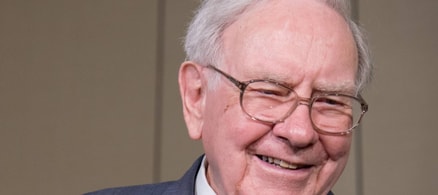Not a perfect system
ESG scores aren’t standardized, nor do all companies disclose their ESG standing.
This is despite ESG dating back to 2006, when the U.N. launched the Principles for Responsible Investment at the New York Stock Exchange. The initiative was backed by leading institutions from 16 countries, representing more than $2 trillion in assets owned at the time.
More from Money.ca
- Are ESG investments really what they claim to be?
- Climate risk assessments may soon impact Canadian real estate prices
- Looking to beat inflation for the long run? Take a look at farmland
ESG critics and optimists have called on the government to use its power to fine tune ESG metrics and finally standardize it, in order to give it more credibility.
A better online investing experience
Easy to use and powerful, Qtrade's online trading platform puts you in full control with tools and resources that help you make well-informed decisions.
Invest NowESG not what it seems?
In 2021, ESG investment saw issuance exceeding US$1.6 trillion, bringing its total market to more than US$4 trillion. Not only that, but Bloomberg expects ESG assets to exceed US$53 trillion by 2025.
Fierce critics like Tariq Fancy — who worked as the chief investment officer for investment management firm BlackRock before leaving in late 2019 — made headlines with his disillusionment over ESG’s true impact.
“That $4 trillion isn't really $4 trillion,” Fancy said, in reference to the widely-circulated figure.
For Fancy, the “vast majority” of what’s happening is that companies are “recategorizing existing funds and moving money and shares around from one basket to another...
“They've figured out that socially conscious investors will gladly pay more in fees for something with a 'green' label,” he said, adding that ESG funds have 43% higher fees on average.
“Also, they don't fund carbon capture and new innovations, for the most part they publicly overweight tech companies (Microsoft) and underweight oil companies (Exxon),” he added.
Also, regular investors mainly have access to secondary shares that are sold and purchased on a daily basis, which have little impact, argued Fancy.
“The changes we need immediately to flatten the [greenhouse gas] curve are collective actions led by the government — experts have been telling us this for decades,” he said.
As ESG investing rises, so do emissions
Like elsewhere, Canadian ESG investment is increasing, but, again like elsewhere, the nation hasn’t reduced its emissions in the past year.
A March, 2022 report from the International Energy Agency said that global energy-related carbon dioxide emissions rose by 6% in 2021 to 36.3 billion tonnes — a new record — as the world bounced back from the pandemic.
Grow Your Savings Effortlessly with Moka
Automate your savings with every purchase and watch your money multiply. Moka rounds up your transactions and invests the spare change. Start building wealth effortlessly today. Join thousands of Canadians embracing financial freedom with Moka
Sign up nowESG does make a difference
Art Lightstone, climate activist and host of the Green Neighbour Podcast, acknowledges ESG has its critics. But for him, this class of investing is still making a difference.
“The fact that ESG investing has not only helped to launch several green tech companies, but also encouraged less socially-minded companies to compete in ESG spaces is now pretty much undeniable,” Lightstone said. “Tesla is invariably the best case in point. The amount of investment directed toward Tesla and other EV startups has been mind boggling.”
While money can be moved from one shareholder to another, “that's not where the story ends.” He cited the example of Tesla when it was “able to raise large amounts of capital [at market prices] with rather little dilution to its stock.”
“Tesla did this three times in 2020, and with that money they were able to build more factories, scale up their production, lower their per-unit costs, increase their profit margins, and therefore increase the economic viability of their entire operation,” he explained.
This expansion created a domino effect for legacy automakers such as GM and Ford, who are investing more in their electric vehicle programs.
Investing intentionally and collectively
Tim Nash, founder of Good Investing, a company with a goal to help at least one million Canadians invest intentionally, argues that informed decision-making can make the impact needed.
“People spend more time choosing an avocado in the grocery store than they spend when choosing a mutual fund for their RRSP," Nash said.
Instead, he urged people to think more about their portfolios and ways to diversify, including carving out part of their portfolios for investment just “for doing more good.”
“This is where we can invest part of our money into things like community bonds and impact investments,” he explained.
Community bonds, a debt financing tool, are issued by non-profit, charity or co-operative organizations. They allow these groups to take loans from community backers. The backers will eventually get paid interest for investing in an impactful project, while the organization enjoys access to capital.
During the interview, Nash noted that he was located at the Centre for Social Innovation, a non-profit that owns two buildings in downtown Toronto.
“How does a non-profit own two buildings in downtown Toronto?” he asked. “Community bonds. That's how they were able to access capital.”
Then there is also shareholder activism, and this is where Nash highlighted how shares that are publicly traded on a secondary market can be used as a powerful tool if used collectively.
“If I sell my shares, someone else is going to buy them. However, if enough people sell their shares that will impact a company's cost of capital,” he said. “This is a very important metric when it comes to how a company operates.”
One example Nash cited as proof of effective shareholder activism is the increased cost of capital for fossil fuel companies. At the same time, there has been an unprecedented shifting of investment capital into greener energy.
Better knowledge needed
The financial industry needs to delve into the environmental sciences, sustainability, and systems thinking to have a more well-rounded view on how to make a full impact, Nash says.
“I do think that a lot of the criticisms come from the financial industry, people who don't have a background (in these topics),” he said. “ESG is a very broad concept… We need everybody rowing together in the same direction.”
While the government is in a position to lead, it’s still caught up in a four-year election cycle, he added.
“It's even shorter if it's a minority government, which we're in right now,” he noted.
Time to start mandating metrics on ESG
Nash put the onus on the Ontario Securities Commission, which regulates companies listed on the Toronto Stock Exchange, to start mandating disclosures of ESG issues, as other regulators have done.
For example, the SEC in the U.S. is focused on the climate aspect of ESG. It mandates that all publicly traded corporations publish their environmental compliance costs, and proposed new rules in March to standardize climate-related disclosures to investors. The rules would require businesses to disclose information about their direct greenhouse gas emissions, as well as the indirect emissions from the energy the business consumes.
In Europe, the trend tends to lean more toward the corporate governance aspect of ESG. Under the 2018 Non-Financial Reporting Directive of the European Union, companies are expected to disclose information on environmental, social, and employee-related problems, such as anti-bribery, corruption, and human rights performance.
In Nash’s view, Japan is ahead of the curve with its Financial Services Agency actually mandating climate risk disclosure.
“Investors, I think, to some degree are demanding more data and information and disclosure than what governments are requiring,” he said. “This is an area where investors are asking tough questions and pushing that forward. That said, investors can ask, and companies get to decide how they respond. Many of them are responding in different ways.”
ESG optimists and critics alike want to see those regular investors emboldened to make the difference the world is waiting for.
Sponsored
Trade Smarter, Today
With CIBC Investor's Edge, kick-start your portfolio with 100 free trades and up to $4,500 cash back.







